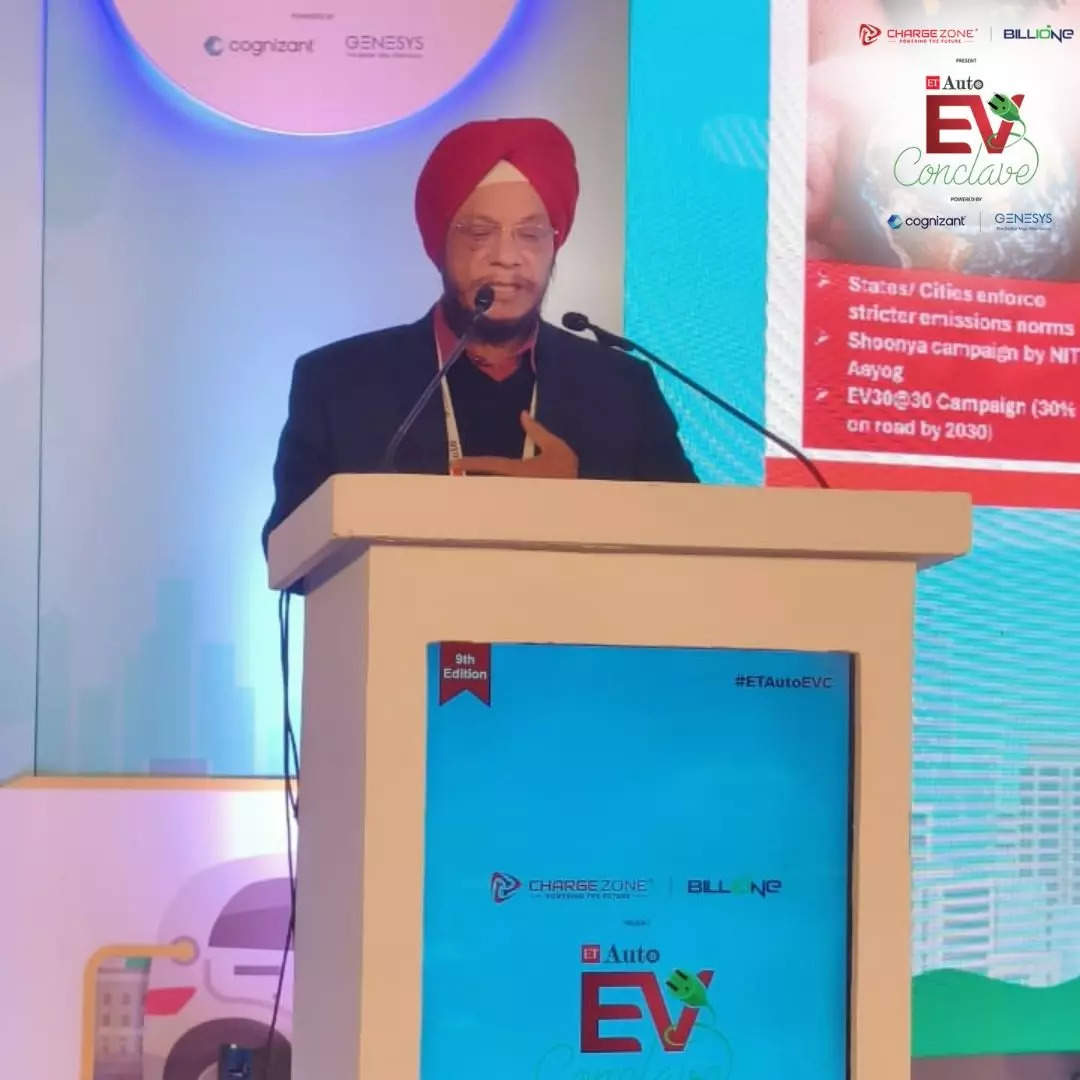
New Delhi: To create a sustainable environment for future generations, we must act today. Enhanced focus on research and development, fostering a supportive ecosystem, strong policy frameworks, and a long-term vision are the key enablers to achieving this goal, Rajinder Singh Sachdeva, Deputy CEO & CTO of Volvo Eicher Commercial Vehicles (VECV), said.
“While challenges are inevitable, innovation remains crucial to overcoming them. At VECV, almost 40%-45% of our R&D budget is dedicated to new energy vehicles,” he said, while speaking at the 9th edition of the ETAuto EV Conclave.
EVs represent most mature technology
When discussing the various fuel technologies available for the commercial vehicle sector, Sachdeva believes that electric vehicles (EVs) represent the most mature technology. However, there is still considerable work to be done in terms of infrastructure, adoption, and scalability. Additionally, the lack of adequate charging infrastructure poses another barrier to widespread adoption.
Over the past seven years, Volvo Group has invested approximately USD 7-8 billion in EV technology. Given their growing demand in Europe, the company initially aimed to convert 15% of its commercial vehicle fleet from diesel to electric.
However, over the last two years the adoption rate has been slower than anticipated. As a result, Volvo has scaled down its conversion estimates, adjusting its plans to align with the current market dynamics and challenges.
“EVs tend to be heavier than diesel vehicles due to the size of their batteries, resulting in a loss of payload capacity,” he added.
LNG more viable alternative?
In this context, Sachdeva sees LNG as a more viable alternative, offering a better balance of cost, efficiency, and infrastructure readiness, especially for the Indian market. But its supply chain and refueling infrastructure still need significant development, along with clearer regulatory support to ensure its widespread adoption.
Similarly, hydrogen internal combustion engines (ICE) vehicles face their own set of challenges. Hydrogen, being a highly flammable fuel, presents safety concerns, and its production remains expensive, making it economically unviable at present. Fuel cell vehicles (FCVs), too, require further advancements in cost reduction before they can become mainstream alternatives.
“The earliest we could see a commercially viable hydrogen ICE vehicle is expected to be in 2027,” he said.
According to Sachdeva, providing tax incentives and regulatory support for a broader range of sustainable technologies can play a crucial role in accelerating their development and making them more accessible to the market.
“The government has done a commendable job by offering a 5% GST on EVs, which has provided a significant boost to the sector. A similar approach could be extended to hybrid vehicles and other emerging technologies,” he said.


